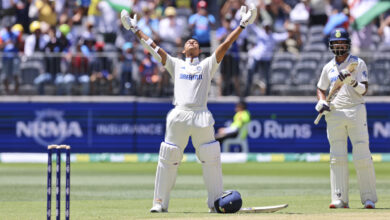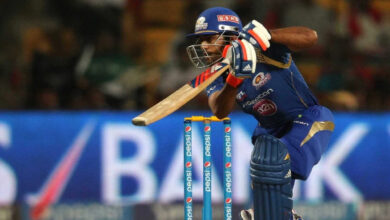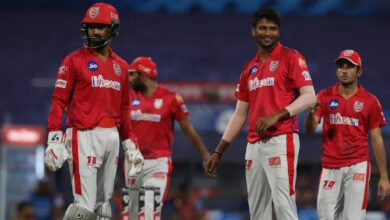How times change: John McEnroe says ‘winning isn’t everything’, Ben Stokes takes defeat on chin

It took John McEnroe, Nelson Mandela and the entire England cricket team to remind the success-obsessed sporting world that winning isn’t everything.Last Sunday, at the Stanford University commencement ceremony, McEnroe, in his booming voice, told the fresh graduates that the lasting memory for most sports fans wasn’t always the result of the game they had watched but the intensity and thrill they had experienced during it.Coincidentally, a few days later, at the end of the first Ashes Test at Edgbaston, losing England captain Ben Stokes too said something similar.
He also redefined the essence of sports. Stokes didn’t see any shame in losing since he and his boys had stuck to their ‘all or nothing’ entertaining brand of cricket, aka Bazball, that had motivated them to give their best.
As for the late Mandela, he featured in a delightful anecdote that was part of the riveting talk that McEnroe, a former Stanford student-athlete, gave at his alma mater. The story goes that the American tennis legend, years after his retirement, got a chance to meet the man who was the face of South Africa’s anti-apartheid campaign.
McEnroe was surprised Mandela’s interest in tennis and the pains he took to follow the sport during his 27 years in prison. His period of confinement was also the time when world tennis’ storied ‘McEnroe-Bjorn Borg’ rivalry was at its peak. It was in 1980, a decade before Mandela was finally released, that the two tennis legends played what is still called the ‘Greatest Wimbledon final’ ever.
The thrill-a-minute almost-four-hour-long match of many deuces, breaks, break-backs and comebacks ended with Borg lifting the trophy. Mandela would tell McEnroe that he, along with other prisoners, were tuned to that match on a tiny radio from his cell on Robben Island. The entire prison, the great man said, hung on to every point during that match that had a 20 minute-long tie-breaker in the fourth set that McEnroe won 18-16. The match would finally end, with Borg winning the fifth set 8-6.
Perspective achieved
At Stanford, McEnroe reminded the sea of young students in caps and gowns – all on the cusp of stepping out of the campus and exploring the big bad world – that with the passage of time, his loss was reduced as a footnote to an epic tennis match that is still etched in the minds of fans and made the game richer.
“The truth is most people don’t remember who won that match … That we gave Mandela a brief respite from the excruciating hell of 27 years of political imprisonment meant more to me than any award I’ve ever won. The lesson here is you don’t have to win to be part of something that is truly magical,” said the man, who after breaking countless racquets on court in his blind pursuit of winning everything in sight, had seen the light.
The bright young faces, sitting on the sprawling turf of a football field and in the stands surrounding it, nodded in agreement. A few with curly-hair wigs, red head bands and tennis outfits – dressed as McEnroe – were dancing in the aisles.
A father of six, McEnroe, 67, had touched a chord. The smartest of their generation, the latest pass-outs from the world’s most prestigious university and, as McEnroe called them, “officially over-achievers” were being taught a lesson that would come in handy as they line up at the starting line of the rat race.
“High-flying mental giants, like all of you, have to realise that taking risks, failing, and learning from your failures is essential to your development … In sports, you often hear the phrase, ‘Winning is everything.’ But in reality, it’s not … After you succeed at something, you expect the skies to open and happiness to rain down on you. But that rarely happens. The truth is victory can be isolating.”
More applause followed. McEnroe was sharing with the brightest of their generation his life learnings of failing after putting up a good fight and it was all sounding soothing and reassuring.
Taking defeat in stride
Stokes had a much difficult task at hand. While Stanford was being prepared to face potential defeat, at Edgbaston failure was staring at his face. The Australians on the fields, and in the stands, were making it worse. The Barmy Army had gone silent, others in the stands too were heartbroken.
Stokes didn’t wilt, he wasn’t apologetic, he didn’t even lean on the usual cliche of finding positives in a loss. He pointed at the bigger picture and the long-term benefits of Bazball. He kept giving the “don’t get me wrong, losing sucks” disclaimer but said that this was the best advertisement of the oldest and fading format, Test cricket.
“If that’s not attracting people to the game we love and have committed so much of our time to, then I don’t know what will,” he said. Stokes would later say that he received a message from his neighbour to say that his “kid had picked up a bat and was playing the way England are”.
Not everyone is feeling the so-called wave of positivity that has apparently hit England cricket. Geoffrey Boycott says the team can’t get carried away Bazball and focus on just being entertaining. “The Ashes isn’t an exhibition,” he barked after the first Test loss. Jonathan Trott isn’t comfortable with the ‘mateship’ between the two teams.
In the event of an Ashes loss, the knives will get sharper. Will the two Kiwis at the helm of England cricket – the Canterbury-born Stokes and coach Brendon McCullum – take the backlash in their stride and continue Bazballing?
Back home in New Zealand, primarily a rug country, fans have more patience with their cricket team or maybe care less. As compared to England, the media is far less shrill. Those on the back-of-beyond island, that has famously more sheep than humans, have limited resources and are known innovators who don’t fear failure.
Influenced surroundings
Back in the day, late 1970s, when McEnroe was a freshman at Stanford, the university too was a hub of innovation. He was a Wimbledon semi-final, but didn’t make heads turn at the campus. That was the time Silicon Valley, not far from Stanford, was taking shape. The real rock stars were those working on their computers in their garages.
Not that McEnroe would join the techies and innovators who would change the world, but the atmosphere “made me hungrier for success”. He indulged in certain activities that would “open my mind” and the campus also made him see “life beyond tennis and academics’ ‘. He developed interest in art and music – the two passions he diligently pursues till date.
Like the Bazball cricketers, McEnroe was expressive, creative and played to win. Never ever has someone so puny whipped a tennis ball as brutally as the loose-limbed left-hander. He pushed the envelope, explored new angles and went for broke. He sounded totally convincing when he extolled the students: “Don’t be afraid to make makes. And for chrissakes, have the balls to say what you feel”.
How times have changed, who would have thought that the former Angry Mac, the epitome of ‘sore loser’ in his playing days, would remind college kids of the famous Kipling quote – “If you can meet with Triumph and Disaster / And treat those two impostors just the same.” – that’s on a wall at Wimbledon. But then who would have foretold that man caught on tape settling a bar brawl with a power right would be the biggest advocate of taking defeat on the chin.
Send feedback to sandydwivedi@gmail.com







